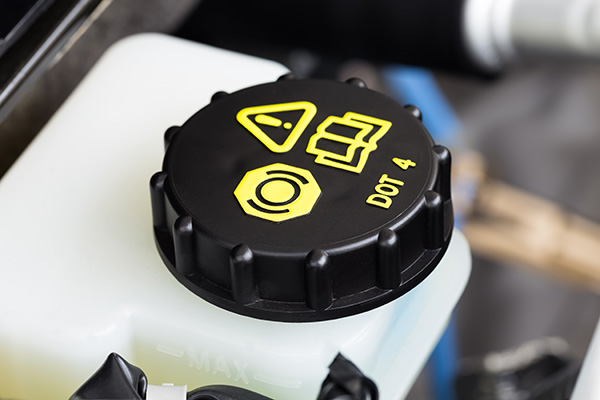
Brake fluid may not receive as much attention as engine oil or tire maintenance, but it plays a crucial role in your vehicle's safety and performance. Without it, your brakes wouldn’t work at all. Over time, brake fluid can become contaminated or lose its effectiveness, and neglecting to replace it regularly can lead to serious problems. Understanding what happens if you skip this important maintenance step helps you make better decisions to protect your car and yourself.
What Does Brake Fluid Do
Brake fluid is a hydraulic fluid that transfers the force from your foot on the brake pedal to the brake components at each wheel. When you press the pedal, the fluid creates pressure in the brake lines, which squeezes the brake pads or shoes against the rotors or drums to slow and stop your car.
Because braking generates heat and pressure, brake fluid must maintain a high boiling point and resist absorbing moisture to perform effectively.
Brake Fluid Absorbs Moisture Over Time
One of the main reasons brake fluid needs to be replaced is that it is hygroscopic, meaning it absorbs moisture from the air over time. Even though the brake system is sealed, small amounts of moisture can still enter through hoses and seals.
As moisture builds up, the boiling point of the brake fluid drops. When the fluid heats up during braking, especially under heavy or repeated use, it can boil and create air bubbles. Air in the brake lines reduces the hydraulic pressure needed to stop the car and can make your brake pedal feel spongy or unresponsive.
Corrosion and Damage to Brake Components
Moisture in the brake fluid can also lead to corrosion inside the brake system. Rust can form on metal components like brake lines, calipers, and master cylinders. Over time, this corrosion can weaken parts and lead to leaks or failures.
Corroded parts are more expensive to replace than regular fluid maintenance and can compromise your vehicle’s safety. Preventing moisture buildup through timely brake fluid replacement helps protect these critical components.
Decreased Braking Performance
Old or contaminated brake fluid can lead to reduced braking efficiency. You might notice that your car takes longer to stop or that you need to press the pedal harder than usual. In emergency situations, even a slight decrease in braking performance can make a big difference in stopping distance and safety.
Keeping your brake fluid fresh ensures that your braking system responds quickly and reliably every time you press the pedal.
Potential for Brake Failure
In the worst-case scenario, neglecting to replace brake fluid can lead to complete brake failure. If the fluid boils and air enters the system, the brake pedal may sink to the floor without providing any stopping power.
This dangerous situation can occur unexpectedly, putting you and others at risk. Regular maintenance is a small investment to prevent a potentially life-threatening event.
How Often Should Brake Fluid Be Replaced
The recommended interval for brake fluid replacement varies depending on your vehicle and driving habits. Many manufacturers suggest changing it every two to three years or every 30,000 miles. However, if you drive in hilly areas, tow heavy loads, or do a lot of stop-and-go driving, your fluid may degrade faster.
Always consult your owner’s manual or ask a trusted technician to determine the right schedule for your car.
Signs Your Brake Fluid Needs Attention
While routine maintenance is the best way to prevent problems, there are some signs that your brake fluid may need immediate attention:
- Spongy or soft brake pedal
- Longer stopping distances
- Brake warning light on the dashboard
- Dark or dirty brake fluid when checked
If you notice any of these symptoms, have your brakes inspected as soon as possible.
Schedule a Brake Fluid Service at DS Auto Experts in Visalia, CA
Regular brake fluid replacement is a simple yet vital part of maintaining your vehicle’s safety and performance. At DS Auto Experts in Visalia, CA, our skilled technicians can inspect your brake system, check your brake fluid, and perform replacements as needed to ensure your car stops safely. Schedule an appointment today and drive with confidence knowing your brakes are in top condition.